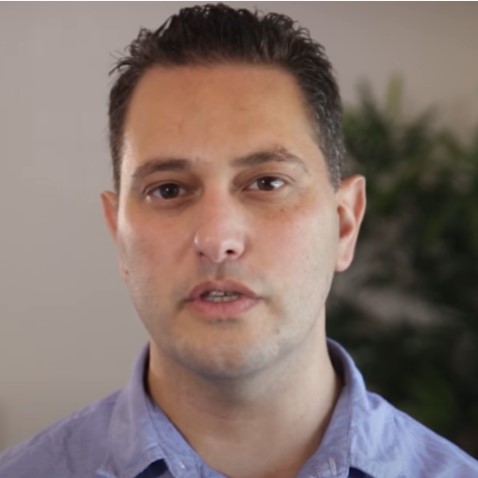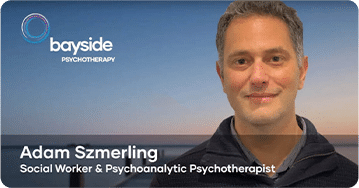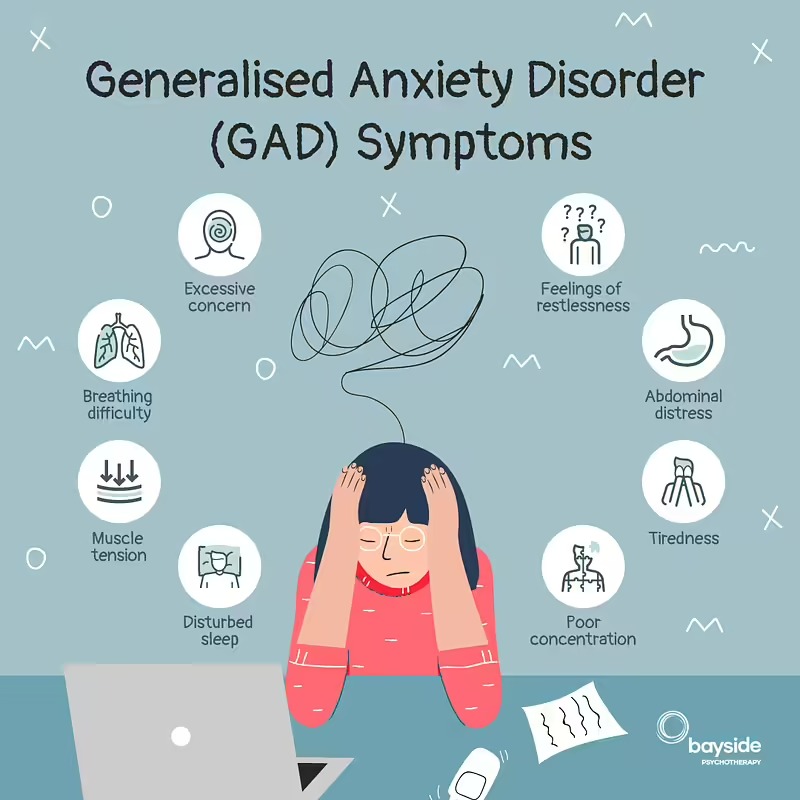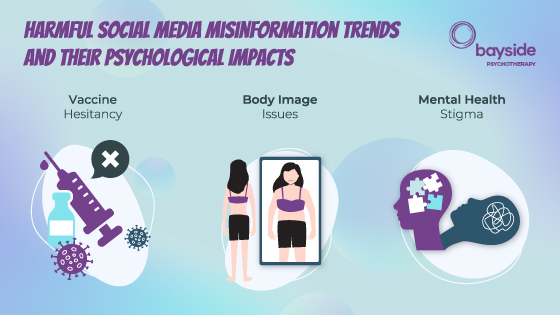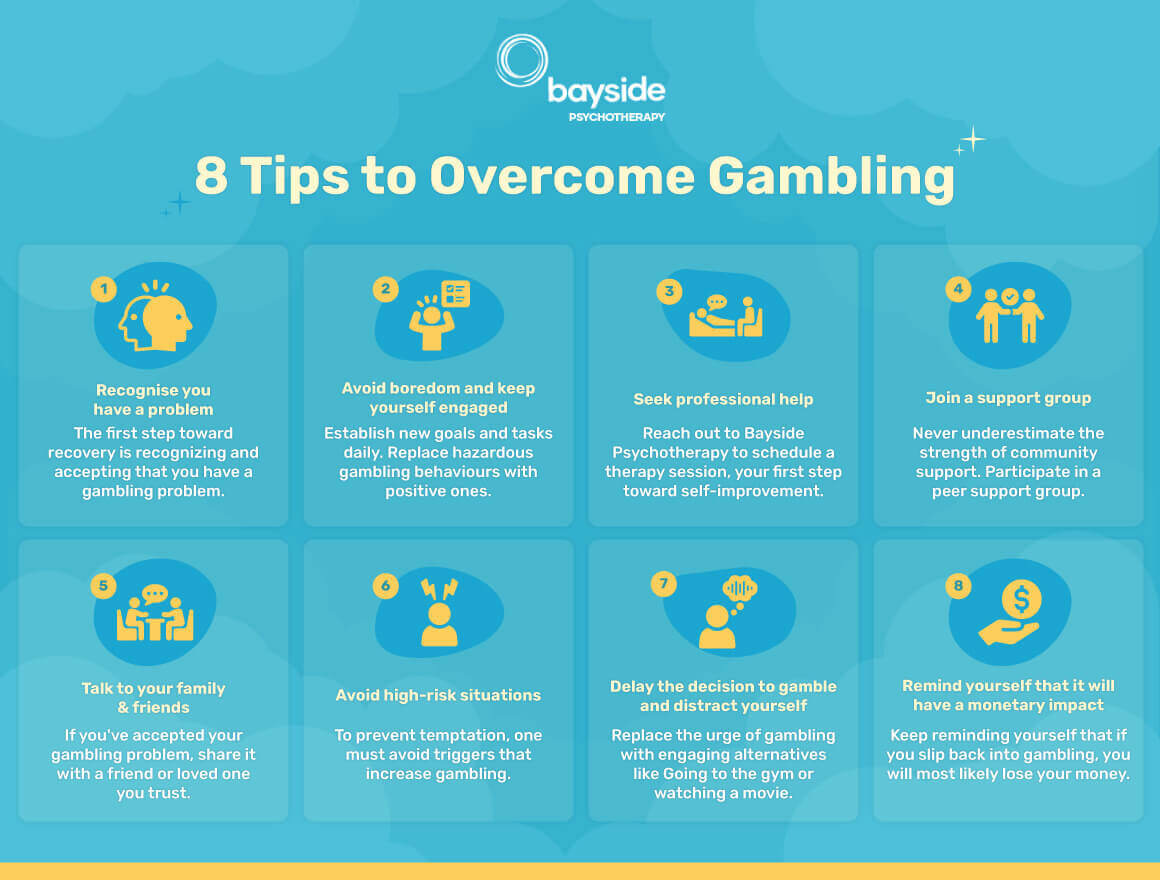Choosing the right therapist: The 5 most important considerations
Choosing the right therapist can be difficult.
Different problems and different personalities call for different therapies and different areas of expertise. What’s more, therapy is also both very personal — sometimes even confronting and upsetting — so you need someone you are very comfortable with.
To enjoy the best chance of success, you need to find a therapist who satisfies all of those criteria, and as you have probably already discovered, that is no easy task.
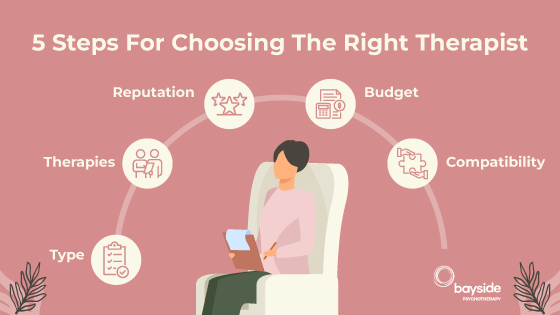
Fortunately, you do not have to do it alone. This comprehensive, step-by-step guide will help you choose the therapist who is the best fit for you and your unique needs.
1. Type
There are many different types of mental health therapists, and some overlap in the types of therapies they provide. So choosing the best type for you can be a little confusing.
Here is a quick summary of the more common therapist types, to help you start narrowing down your options.
Psychologist
A psychologist studies human behaviour and thought processes, diagnoses mental health conditions, and provides therapeutic interventions to help individuals cope with emotional, behavioural, and cognitive challenges. They use evidence-based techniques to promote well-being and improve mental health outcomes.
To be called a psychologist in Australia, a therapist must have completed a four-year undergraduate degree in psychology and:
- A two-year internship; or
- A one-year post-graduate qualification + one year of internship; or
- A two-year master’s degree or a three-year doctoral degree in psychology.
They can then apply for endorsement in their area of expertise (e.g. clinical psychology or forensic psychology) from the Psychology Board of Australia (PsyBA).
Psychiatrist
A psychiatrist diagnoses, treats and aims to prevent mental illnesses, from a medical perspective. They assess patients, prescribe medications, provide psychotherapy, and offer interventions for complex psychiatric disorders. They are also able to admit patients to hospital if they require intensive support and care.
Psychiatrists are medical doctors who have undertaken additional studies in psychiatry with the Royal Australian and New Zealand College of Psychiatrists (RANZCP). This additional training usually takes at least five years.
Once they have completed their studies, they become a Fellow of the Royal Australian and New Zealand College of Psychiatrists (FRANZCP), and they must register as a specialist with the Medical Board of Australia.
Counsellor
A counsellor provides guidance and support to individuals facing personal, emotional, or mental challenges. They facilitate client self-awareness, offer coping strategies, and create a safe space for discussing issues to promote well-being and personal growth.
In Australia, there is no legal requirement for counsellors to have specific qualifications or experience, or to be a member of any organisation. But there are a number of formal degrees in counselling, as well as industry standards and professional associations that ensure quality and ethical service delivery.
For example, a good counsellor may have a Bachelor of Applied Social Science (Counselling) and a Master of Social Work (MSW), along with a membership with the Psychotherapy and Counselling Federation of Australia (PACFA).
Hypnotherapist
A hypnotherapist uses guided relaxation and focused attention to induce a trance-like state, helping clients access their subconscious mind to address behavioural patterns, emotional issues, or phobias, facilitating positive change and healing.
Like counsellors, hypnotherapists in Australia are not legally required to possess any specific qualifications, training or memberships. However, there are recognised tertiary qualifications in hypnotherapy, as well as industry standards and professional associations that help ensure quality and ethical service delivery.
For example, a good hypnotherapist may have a government-accredited Diploma Clinical Hypnotherapy, and a membership with the The Australian Association of Clinical Hypnotherapy and Psychotherapy, the Australian Hypnotherapists Association (AHA) or the Hypnotherapy Council of Australia (HCA).
Psychotherapist
A psychotherapist offers therapeutic treatments for emotional, mental, and behavioural issues. Using various modalities, they help clients navigate life challenges and understand feelings, facilitating healing and personal growth. Psychotherapists delve deeper into current relationship dynamics, as well as childhood family dynamics and history. They are less solutions-focussed and do not offer tools and techniques, instead aiming to inspire deeper exploration and reflection through talking in a unique way.
Psychotherapists can come from various educational backgrounds, including psychology, counselling, social work and psychiatry. Although, in Australia, they are not required to possess any specific qualifications, most typically have at least a master’s degree in their area of expertise, and many undergo additional training in specific therapeutic techniques. There are also industry standards and professional associations that help ensure quality and ethical service delivery.
Mental health social worker
A mental health social worker is typically a therapist who works with recognised therapies to treat patients with emotional, mental, and behavioural issues, but who also considers the broader social context.
To legally work as a mental health social worker in Australia, a person must be a qualified therapist who has met the standards established by the Australian Association of Social Workers (AASW).
2. Therapies
There are even more types of therapy than there are types of therapists. Each type approaches problems differently — both theoretically and practically — so it is helpful to have a basic understanding of the more common ones before seeking help.
Here is a quick overview of each, as well as some pros and cons.
| Cognitive behavioural therapy (CBT) Identifies, challenges, and reframes negative thought patterns + Learn more |
||
|---|---|---|
| Pros & cons | Emotional exploration | Typically offered by |
| ✅Short-term ✅Structured ✅Practical ✅Teaches coping skills ❌Surface-level ❌Not deep-rooted ❌Requires homework ❌Not always introspective ❌Results may not always be long-lasting + Show references |
Psychologists Psychiatrists Counsellors |
|
| Psychodynamic therapy Explores unconscious patterns stemming from past experiences + Learn more |
||
| Pros & cons | Emotional exploration | Typically offered by |
| ✅Uncovers deep-rooted issues ✅Lasting insights ✅Holistic ❌Long-term ❌Can be intense ❌Less structured + Show references |
Psychologists (sometimes) Psychiatrists (sometimes) Psychotherapists (often) Mental health social workers |
|
| Person-centred therapy (or Rogerian therapy) Provides unconditional positive regard, empathy & active listening + Learn more |
||
| Pros & cons | Emotional exploration | Typically offered by |
| ✅Non-directive ✅Empathetic ✅Validates feelings ❌Lacks techniques ❌Slow progress ❌Too client-led + Show references |
Psychologists Counsellors Psychotherapists Mental health social workers |
|
| Hypnotherapy Uses trance-like states to access & influence the subconscious mind + Learn more |
||
| Pros & cons | Emotional exploration | Typically offered by |
| ✅Can deliver rapid results ✅Bypasses conscious mind ✅Versatile ❌Results may not always be long-lasting ❌Not appropriate for treatment of psychosis ❌Some clients mistakenly think they do not have to actively participate + Show references |
Hypnotherapists Some mental health social workers Some psychologists Some counsellors |
|
| Interpersonal therapy (IPT) Addresses interpersonal issues & patterns to alleviate symptoms + Learn more |
||
| Pros & cons | Emotional exploration | Typically offered by |
| ✅Short-term ✅Relationship-focused ✅Structured ❌Ignores deep-rooted issues ❌Specific focus ❌Less holistic + Show references |
Psychologists Psychiatrists Psychotherapists |
|
| Dialectical behaviour therapy (DBT) Balances acceptance & change strategies for emotional regulation + Learn more |
||
| Pros & cons | Emotional exploration | Typically offered by |
| ✅Structured ✅Skill-focused ❌Intensive ❌Requires commitment ❌Often group-based + Show references |
Psychologists Psychiatrists Counsellors Mental health social workers |
|
| Integrative or Eclectic therapy Combines techniques from various therapeutic approaches + Learn more |
||
| Pros & cons | Emotional exploration | Typically offered by |
| ✅Tailored ✅Versatile ❌Less consistent ❌Vague + Show references |
Psychologists Counsellors Psychotherapists Psychiatrists |
|
| Narrative therapy Reshaping personal stories & identities + Learn more |
||
| Pros & cons | Emotional exploration | Typically offered by |
| ✅Empowering ✅Non-pathologizing ❌May seem indirect ❌Neglects other factors ❌Requires openness + Show references |
Counsellors Psychotherapists |
|
| Solution-focused brief therapy (SFBT) Targets immediate solutions rather than underlying problems + Learn more |
||
| Pros & cons | Emotional exploration | Typically offered by |
| ✅Goal-oriented ✅Short-term ✅Practical ❌Overlooks deeper issues ❌Rigid ❌Less introspective + Show references |
Counsellors Psychotherapists Mental health social workers |
|
| Gestalt therapy Integrates mind, body & feelings in the present moment + Learn more |
||
| Pros & cons | Emotional exploration | Typically offered by |
| ✅Present-focused ✅Holistic ✅Experiential ❌Intense ❌Confrontational ❌Not always structured + Show references |
Psychologists Counsellors Psychotherapists |
|
| Schema therapy Identifies & changes negative life patterns (schemas) + Learn more |
||
| Pros & cons | Emotional exploration | Typically offered by |
| ✅Integrative ✅Deep insights ❌Long-term ❌Requires commitment ❌Can be intense + Show references |
Psychologists Psychiatrists Psychotherapists Mental health social workers |
|
| Acceptance and commitment therapy (ACT) Fuses acceptance strategies with commitment to value-driven actions + Learn more |
||
| Pros & cons | Emotional exploration | Typically offered by |
| ✅Value-driven ✅Flexible ❌Requires openness ❌Less technique-driven ❌Introspective + Show references |
Psychologists Psychiatrists Psychotherapists Mental health social workers |
|
| Mindfulness-based cognitive therapy (MBCT) Integrates mindfulness practices with cognitive therapeutic techniques + Learn more |
||
| Pros & cons | Emotional exploration | Typically offered by |
| ✅Present-focused ❌Requires practice ❌Introspective ❌Not solution-focused + Show references |
Psychologists Psychiatrists Counsellors Psychotherapists |
|
| Family systems therapy Examines family dynamics & roles to identify issues + Learn more |
||
| Pros & cons | Emotional exploration | Typically offered by |
| ✅Holistic ✅Insightful ❌Requires family participation ❌Intense ❌Complex + Show references |
Psychologists Psychiatrists Psychotherapists Mental health social workers |
|
| Pros & cons | Emotional exploration | Typically offered by | |
|---|---|---|---|
| Cognitive behavioural therapy (CBT) Identifies, challenges, and reframes negative thought patterns + Learn more |
✅Short-term ✅Structured ✅Practical ✅Teaches coping skills ❌Surface-level ❌Not deep-rooted ❌Requires homework ❌Not always introspective ❌Results may not always be long-lasting + Show references |
Psychologists Psychiatrists Counsellors |
|
| Psychodynamic therapy Explores unconscious patterns stemming from past experiences + Learn more |
✅Uncovers deep-rooted issues ✅Lasting insights ✅Holistic ❌Long-term ❌Can be intense ❌Less structured + Show references |
Psychologists (sometimes) Psychiatrists (sometimes) Psychotherapists (often) Mental health social workers |
|
| Person-centred therapy (or Rogerian therapy) Provides unconditional positive regard, empathy & active listening + Learn more |
✅Non-directive ✅Empathetic ✅Validates feelings ❌Lacks techniques ❌Slow progress ❌Too client-led + Show references |
Psychologists Counsellors Psychotherapists Mental health social workers |
|
| Hypnotherapy Uses trance-like states to access & influence the subconscious mind + Learn more |
✅Can deliver rapid results ✅Bypasses conscious mind ✅Versatile ❌Results may not always be long-lasting ❌Not appropriate for treatment of psychosis ❌Some clients mistakenly think they do not have to actively participate + Show references |
Hypnotherapists Some mental health social workers Some psychologists Some counsellors |
|
| Interpersonal therapy (IPT) Addresses interpersonal issues & patterns to alleviate symptoms + Learn more |
✅Short-term ✅Relationship-focused ✅Structured ❌Ignores deep-rooted issues ❌Specific focus ❌Less holistic + Show references |
Psychologists Psychiatrists Psychotherapists |
|
| Dialectical behaviour therapy (DBT) Balances acceptance & change strategies for emotional regulation + Learn more |
✅Structured ✅Skill-focused ❌Intensive ❌Requires commitment ❌Often group-based + Show references |
Psychologists Psychiatrists Counsellors Mental health social workers |
|
| Integrative or Eclectic therapy Combines techniques from various therapeutic approaches + Learn more |
✅Tailored ✅Versatile ❌Less consistent ❌Vague + Show references |
Psychologists Counsellors Psychotherapists Psychiatrists |
|
| Narrative therapy Reshaping personal stories & identities + Learn more |
✅Empowering ✅Non-pathologizing ❌May seem indirect ❌Neglects other factors ❌Requires openness + Show references |
Counsellors Psychotherapists |
|
| Solution-focused brief therapy (SFBT) Targets immediate solutions rather than underlying problems + Learn more |
✅Goal-oriented ✅Short-term ✅Practical ❌Overlooks deeper issues ❌Rigid ❌Less introspective + Show references |
Counsellors Psychotherapists Mental health social workers |
|
| Gestalt therapy Integrates mind, body & feelings in the present moment + Learn more |
✅Present-focused ✅Holistic ✅Experiential ❌Intense ❌Confrontational ❌Not always structured + Show references |
Psychologists Counsellors Psychotherapists |
|
| Schema therapy Identifies & changes negative life patterns (schemas) + Learn more |
✅Integrative ✅Deep insights ❌Long-term ❌Requires commitment ❌Can be intense + Show references |
Psychologists Psychiatrists Psychotherapists Mental health social workers |
|
| Acceptance and commitment therapy (ACT) Fuses acceptance strategies with commitment to value-driven actions + Learn more |
✅Value-driven ✅Flexible ❌Requires openness ❌Less technique-driven ❌Introspective + Show references |
Psychologists Psychiatrists Psychotherapists Mental health social workers |
|
| Mindfulness-based cognitive therapy (MBCT) Integrates mindfulness practices with cognitive therapeutic techniques + Learn more |
✅Present-focused ❌Requires practice ❌Introspective ❌Not solution-focused + Show references |
Psychologists Psychiatrists Counsellors Psychotherapists |
|
| Family systems therapy Examines family dynamics & roles to identify issues + Learn more |
✅Holistic ✅Insightful ❌Requires family participation ❌Intense ❌Complex + Show references |
Psychologists Psychiatrists Psychotherapists Mental health social workers |
3. Reputation
Researching a therapist’s reputation is essential for ensuring that you are entrusting your mental well-being to a competent and reputable professional. Below is a summary of how you can effectively research a therapist’s standing and reputation in Australia:
- AHPRA, PACFA or AASW registration check: Start with the Australian Health Practitioner Regulation Agency (AHPRA) website for psychologists. Every practitioner legally allowed to provide psychology must be registered with AHPRA. The site will provide information on the practitioner’s registration status, any conditions on their practice, and any reprimands or prohibitions. For Psychotherapists, check the PACFA registry. For Hypnotherapy, search the AHA registry or similar.
- Professional associations: Many therapists are also members of professional bodies, such as the Australian Psychological Society (APS) or the Australian Association of Social Workers (AASW). These organisations often have directories of accredited therapists and may offer additional layers of accountability and ethical standards.
- Recommendation from GP or other health professional: Most GPs and many other health professionals possess a good awareness of the therapists in the local area, and their capabilities. You should definitely consider their recommendations.
- Online Reviews and testimonials: While AHPRA regulations prohibit therapists from using testimonials in their advertising, third-party platforms might have patient reviews. Remember to approach these with a discerning mind; not every review (positive or negative) may provide a full picture or be relevant.
- Peer recommendations: Sometimes, local or online communities dedicated to mental health or specific issues (like anxiety or trauma support groups) can be sources of recommendations. Others who have had positive therapeutic experiences might share the names of professionals they trust.
- Publications and research: If a therapist has written articles, books, or been involved in research, it might give you an insight into their expertise and approach. Australian academic databases or journals can be a place to search for their contributions.
- Initial consultation: Once you have shortlisted potential therapists, consider an initial consultation. This not only allows you to gauge your comfort with them but also to enquire directly about their experience, approach, and any areas of expertise.
In all your research, remember that past performance is not an indication of future performance. Just because someone says their psychologist cured their depression does not mean she can do the same for you. And just because your local hypnotherapist claims they have a 99% success rate for smoking cessation, that does not necessarily mean they will stop you.
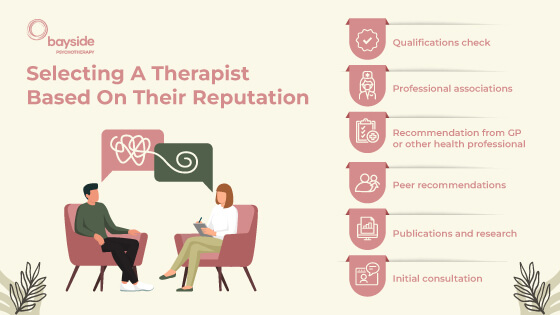
4. Budget
Unfortunately, budget is always a consideration, even when making a decision as important as which therapist is right for you.
When thinking about cost, remember that the therapist’s consultation fee is not the only consideration. You also have to consider how often you will need treatment, how many weeks, months or even years your treatment will take, and whether the therapist is able to offer Medicare and private health rebates.
For example, Cognitive behavioural therapy (CBT) counselling, hypnotherapy and psychology tend to require fewer sessions than psychotherapy, because they typically focus on issues in the here and now, involve less introspection and emotional exploration, and patients are expected to complete homework.
Psychotherapy, on the other hand, is a holistic practice that focuses on deep-rooted issues and lasting insights. It requires a lot of emotional exploration and self-reflection and, as a result, treatment can range from short-term (a few sessions) to long-term (several years), depending on the therapeutic approach and the needs of the client.
Here is a rough guide that will help you estimate the typical long-term cost of treatment.
| Therapist type | Cost guide | Medicare rebate? | Private health rebate? |
|---|---|---|---|
| Psychologist | $$$$$ | ✅ | ✅ |
| Psychiatrist | $$$$$ | ✅ | ✅ Usually only hospital cover |
| Counsellor | $$$$$ | ✅ Some funds only |
|
| Hypnotherapist | $$$$$ | ✅ Some funds only |
|
| Psychotherapist | $$$$$ | ✅ Some funds only |
|
| Mental health social worker | $$$$$ | ✅ | ✅ Some funds only |
5. Compatibility
Perhaps the single most important consideration when choosing a therapist is compatibility.
Therapy is usually deeply personal and, at times, upsetting and confronting. As a patient, there is a good chance you will need to expose your deepest fears and desires, and confront and admit painful thoughts and emotions. It is possible you will share things you have never shared with anyone else, in your entire life, and which you may even have been hiding from yourself.
For most people, this is all quite difficult, and to even attempt it, you will need to feel safe with your therapist.
It is important to note, however, that you probably will not feel completely comfortable in your initial sessions. You will be discussing uncomfortable topics. Indeed, for a while, so you may, in fact, feel decidedly uncomfortable. But you won’t be judged, and you shouldn’t feel that you are unable to get a word in edgewise, or that they are doubting you or belittling your concerns. If you are naturally talkative, they should respect your need to express and not make you feel like you are dominating conversation. If, on the other hand, you are naturally reserved, they should possess the skill to gently draw you out. Their communicative style needs to complement yours.
A shared sense of humour can also help. Moments of levity can humanise the process and act as a relief valve during intense sessions.
You cannot always predict compatibility, and nor can you be completely comfortable with anyone after just an hour. But you should definitely be able to sense if the potential for comfort is there after your initial consultation.
No matter who you choose…
Choosing the right therapist is critical, but no matter who you choose, it is important to remember that much of your healing and change must come from within.
It is not like getting your car serviced. It is a ‘do with’ thing, not a ‘do to’ thing, and even with the best and most compatible therapist guiding you, you will have to take ownership of your treatment and be committed to the process.
You will also need to reflect honestly on your needs, goals and preferences, and be realistic about how quickly you are likely to see results and how long your treatment may take. In particular, it is important to realise that there will definitely be a ‘getting to know you’ period of at least two to three sessions. During this time, you will familiarise yourself with your therapist’s approach and build the trust required to fully take them into your confidence. And both you and your therapist will get comfortable with each other’s personality, mannerisms and communication methods.
In other words, you will need to give it some time and try not to expect miracles.
Likewise, do not expect your therapist to be perfect. There is no such thing as the perfect therapist, just as there is no such thing as the perfect life partner. Expectations of perfection are unrealistic, and will only ever end in disappointment.
Conclusion
Hopefully you are now in a much better position to decide what sort of therapist you need, and how to decide which individual therapist will be most compatible with you, personally.
If you have any questions about anything covered in this guide, please feel free to contact us. We would be happy to discuss with you.
Alternatively, you can read about our team of expert therapists or book an introductory consultation now.

Here are a couple of blogs written on this topic you might find useful:
The Balance of Power in Romantic Relat...
Why do some relationships thrive while others feel like a constant tug-of-war? Power dynamics lie at the heart of this balance,.
The Dark Side of Social Media: How Mis...
Ever find yourself scrolling mindlessly on your phone, only to realise the hours have slipped away? You’re not alone. For man.
Creating Healthier Workspaces: How str...
Employee mental health is pivotal to overall workplace wellbeing, impacting individual performance, job satisfaction, and organ.
From High Stakes to Healing: 8 Tips To...
Gambling activities have become more accessible and convenient due to the proliferation of casinos and the rapid growth of online gambling platforms. Mo.

